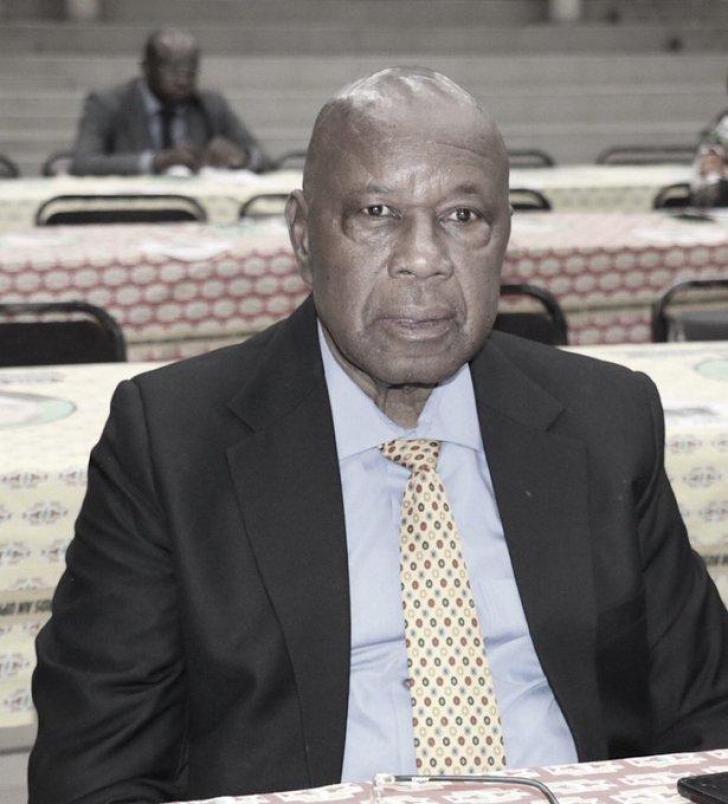News / National
Leadership legality concerns arise after war vets' congress
14 Oct 2024 at 07:22hrs |
0 Views

The recent election of a new leadership for the Zimbabwe National Liberation War Veterans Association (ZNLWVA) during a congress held in Gweru on Saturday has raised significant legal questions, particularly following a pending court case concerning the legitimacy of the leadership factions involved.
Christopher Mutsvangwa, who had led the ZNLWVA since 2013, was ousted during the congress, receiving only 11 votes while his successor, Cephas Ncube, secured a commanding 294 votes. Other contenders included Albert Ncube, who garnered 90 votes, and Victor Matemadanda, who received 75 votes. The congress's proceedings, however, appear to conflict with an order issued by High Court Judge Justice Philda Muzofa, who directed the splinter groups to negotiate and reach an agreement regarding the legitimate leader of the ZNLWVA by October 21, 2024.
In her ruling, Justice Muzofa emphasized the necessity of resolving the leadership dispute, stating: "Whereas the parties are agreed that three factions represented by Elias Marashwa, Christopher Mutsvangwa, and Edward Dube claim to be the legitimate leadership of the Zimbabwe National War Veterans Association. Recognising the need to dispose of the real issue of the legitimate leadership, the parties are directed to engage on how the matter must proceed to deal with the real issues and appear virtually before the Court with the agreed position on 21 October 2024 at 1500 hours."
Despite this court order, the Gweru congress proceeded, prompting criticism from various factions. Edward Dube, secretary general of a faction aligned with Ethan Mathibela, condemned the congress as illegitimate. "Given that this matter is still pending before the courts, such a Congress would be invalid and in direct contravention of the Court's Order," Dube stated. He also mentioned that the lawyers representing all three factions were in discussions to determine the best way to clarify the legitimate leadership for presentation to Justice Muzofa.
Elias Marashwa, chairman of another faction, expressed hope for an amicable resolution to the leadership crisis. "As genuine war veterans, we feel that squabbles are not good for the welfare of former liberation war fighters. Instead of fighting among ourselves, war veterans should be teaching the young generation about preserving and upholding the virtues and ideals of an independent Zimbabwe," Marashwa noted.
Insiders within Zanu-PF suggested that the congress had the blessing of President Emmerson Mnangagwa and was seen as a strategy to remove Mutsvangwa, who had been considered ambitious within the party. The war veterans are often viewed as de facto political commissars for the ruling party, playing a critical role in supporting Mnangagwa's bid for a third presidential term.
Interestingly, following his ouster, Mutsvangwa expressed confidence in the new executive, suggesting a possible shift in dynamics within the association. The developments from the congress and the impending court decision on October 21 are likely to have significant implications for the ZNLWVA and its relationship with the ruling party.
Christopher Mutsvangwa, who had led the ZNLWVA since 2013, was ousted during the congress, receiving only 11 votes while his successor, Cephas Ncube, secured a commanding 294 votes. Other contenders included Albert Ncube, who garnered 90 votes, and Victor Matemadanda, who received 75 votes. The congress's proceedings, however, appear to conflict with an order issued by High Court Judge Justice Philda Muzofa, who directed the splinter groups to negotiate and reach an agreement regarding the legitimate leader of the ZNLWVA by October 21, 2024.
In her ruling, Justice Muzofa emphasized the necessity of resolving the leadership dispute, stating: "Whereas the parties are agreed that three factions represented by Elias Marashwa, Christopher Mutsvangwa, and Edward Dube claim to be the legitimate leadership of the Zimbabwe National War Veterans Association. Recognising the need to dispose of the real issue of the legitimate leadership, the parties are directed to engage on how the matter must proceed to deal with the real issues and appear virtually before the Court with the agreed position on 21 October 2024 at 1500 hours."
Elias Marashwa, chairman of another faction, expressed hope for an amicable resolution to the leadership crisis. "As genuine war veterans, we feel that squabbles are not good for the welfare of former liberation war fighters. Instead of fighting among ourselves, war veterans should be teaching the young generation about preserving and upholding the virtues and ideals of an independent Zimbabwe," Marashwa noted.
Insiders within Zanu-PF suggested that the congress had the blessing of President Emmerson Mnangagwa and was seen as a strategy to remove Mutsvangwa, who had been considered ambitious within the party. The war veterans are often viewed as de facto political commissars for the ruling party, playing a critical role in supporting Mnangagwa's bid for a third presidential term.
Interestingly, following his ouster, Mutsvangwa expressed confidence in the new executive, suggesting a possible shift in dynamics within the association. The developments from the congress and the impending court decision on October 21 are likely to have significant implications for the ZNLWVA and its relationship with the ruling party.
Source - NewZimbabwe
Join the discussion
Loading comments…



























